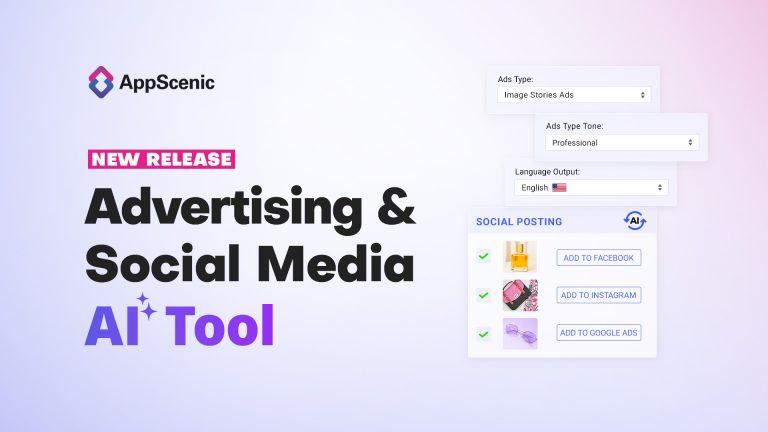The ecommerce world is a competitive one, and if you want your dropshipping website to stand out, simply listing products and hoping for the best won’t cut it. You need to leverage the power of SEO (also known as Search Engine Optimization) to drive organic traffic to your site and convert visitors into customers.
Now, SEO might seem like a complex, ever-changing process, but fear not! This guide is here to break down advanced SEO strategies that are not only effective but also easy to apply. So, read on for advanced SEO tactics to appy to your dropshipping store.
Table of Contents
Why SEO is crucial for dropshipping websites
First, it’s important to understand why SEO is particularly crucial for dropshipping stores.
1. Competitive edge
The dropshipping market is saturated with countless stores, many selling similar or even identical products. SEO helps you rise above the noise by improving your website’s visibility in search engine results, making it easier for potential customers to find you instead of your competitors.
2. Cost-effective marketing
Unlike paid advertising, which requires a continuous investment to maintain visibility, SEO provides a cost-effective way to attract organic traffic. Once your website is optimized, you can enjoy a steady stream of visitors without ongoing costs.
3. Builds trust and credibility
Appearing on the first page of search results not only increases your visibility but also builds trust and credibility. Customers are more likely to trust a website that ranks highly in search engines, which can lead to higher conversion rates and customer loyalty.
Advanced SEO strategies for dropshipping websites
Ready to supercharge your SEO efforts? Let’s explore some advanced strategies that are easy to apply and can give significant results for your dropshipping website.
Strategy 1: Optimize for long-tail keywords
Long-tail keywords are highly specific phrases that customers are likely to use when they are closer to making a purchase. Unlike broad keywords, which are highly competitive and often dominated by big brands, long-tail keywords have lower competition and higher conversion rates.
Why long-tail keywords?
Think about it: A customer searching for “men’s shoes” might just be browsing, but someone searching for “affordable men’s running shoes with arch support” has a clear intent to buy. By targeting these specific phrases, you attract more qualified traffic to your site.
How to find long-tail keywords
Use tools like Google Keyword Planner, Ahrefs, or SEMrush to identify long-tail keywords relevant to your products. Look for keywords with moderate to high search volume but low competition in a specific region, be it US or UK. Then, incorporate these keywords naturally into your product titles, descriptions, meta tags, and blog content.
More on how to choose long-tail keywords
Strategy 2: Create high-quality, engaging content
Content is king, and it’s not going anywhere. In fact, high-quality content is more important than ever for SEO. But we’re not just talking about product descriptions, think beyond these. Blog posts, how-to guides, video tutorials, and product reviews are all excellent ways to engage your audience and improve your SEO.
Why content matters for SEO
Search engines like Google reward websites that provide valuable, original, and relevant content. By creating content that answers your audience’s questions, solves their problems, or entertains them, you increase the likelihood of ranking higher in search results. Additionally, engaging content encourages visitors to stay longer on your site, which can reduce bounce rates and boost your SEO performance.
Content ideas for dropshipping websites
- Product comparisons: Compare your products with others in the market. Highlight the unique features and benefits of your offerings.
- How-to guides: Create guides on how to use your products or solve common problems. For example, if you sell kitchen gadgets, write a guide on “How to Choose the Right Blender for Your Cooking Needs.”
- Industry news and trends: Stay on top of industry trends and news on your blog, newsletters and social media. By sharing insights and updates that your audience might find valuable, you can become their go-to expert for specific products related questions.
Strategy 3: Optimize product pages for conversion
Your product pages are the heart of your dropshipping website. If they’re not optimized for both SEO and conversions, you’re wasting huge opportunities. Here’s how to optimize them effectively,
1. Use compelling titles and meta descriptions
Your titles and meta descriptions should include your primary keywords but also be compelling enough to encourage clicks. Think of them as your first impression, make it count!
- Title example: “Eco-Friendly Bamboo Toothbrush – Reduce Waste, Enjoy Superior Clean”
- Meta description example: “Looking for an eco-friendly alternative to plastic toothbrushes? Our bamboo toothbrushes are sustainably sourced and provide a superior clean. Shop now and join the green movement!”
2. High-quality images and videos
Images and videos can make or break a product page. Use high-quality images that showcase your product from different angles. Include short videos that demonstrate the product in action. This not only helps with SEO (search engines are still favoring multimedia content) but also enhances the customer experience, leading to higher conversions.
3. Detailed product descriptions
Avoid generic, manufacturer-provided descriptions. Write unique, detailed product descriptions that include your primary and secondary keywords. Highlight the benefits of the product and address potential customer questions or concerns.

Strategy 4: Leverage user-generated content (UGC)
User-generated content, such as reviews, testimonials (especially video testimonials), and social media mentions, can significantly boost your SEO efforts. It seems that Google is favoring more and more ecommerce and user-generated content. UGC not only provides fresh, relevant content that search engines love but also builds trust and credibility with potential customers.
How to encourage user-generated content
- Incentivize reviews: Offer discounts or freebies to customers who leave a review.
- Create a branded hashtag: Encourage customers to share photos or videos of their purchases on social media using a branded hashtag.
- Feature customer content: Highlight customer reviews, photos or videos on your website and social media channels to encourage others to share.
Strategy 5: Build high-quality backlinks
Backlinks, or links from other websites to yours, are one of the most important ranking factors for SEO. However, not all backlinks are created equal. Focus on building high-quality backlinks from reputable websites in your niche.
Strategies for Building Backlinks
- Guest blogging: Write guest posts for reputable blogs in your niche. Include a link back to your website in the author bio or within the content if possible.
- Collaborate with influencers: Partner with influencers in your niche to create content that includes a link back to your website.
- Create shareable content: Develop high-quality, shareable content, such as infographics, videos, or research reports, that other websites will want to link to.
Here are more ways to get quality backlinks
Strategy 6: Optimize for mobile and page speed
More than half of all internet traffic comes from mobile devices. If your website isn’t optimized for mobile, you’re missing out on a significant chunk of potential traffic. Additionally, page speed is a critical ranking factor for SEO. A slow website can lead to higher bounce rates and lower rankings.
Tips for mobile optimization and speed
- Use a responsive design: Ensure your website adapts to different screen sizes and provides a seamless experience across devices.
- Compress images and videos: Large media files can slow down your website. Use tools like TinyPNG or Compressor.io to compress images and videos without losing quality.
- Leverage browser caching: Use caching to store frequently accessed files, reducing load times for returning visitors.
Strategy 7: Use schema markup to enhance search results
Schema markup is a form of microdata that helps search engines understand the content on your pages better. By using schema markup, you can enhance your search results with rich snippets, such as product ratings, prices, and availability, making your listings more appealing to potential customers.
How to implement schema markup
- Use tools like Google’s Structured Data Markup Helper or Schema.org to generate schema markup for your product pages.
- Add the generated code to your website’s HTML, or use plugins if you’re using a platform like Shopify or WordPress.
Strategy 8: Leverage AI tools for SEO optimization
Now you can optimize your dropshipping store for search engines with our new AppScenic SEO AI Tool too. Our powerful tool automates your SEO efforts, ensuring that your products are optimized to rank higher and attract more traffic with minimal effort.
Key benefits of the SEO AI Tool
- Automated SEO optimization: Generate optimized titles, descriptions, and keywords effortlessly using our AI technology. This means you no longer have to spend hours tweaking product descriptions or researching the perfect keywords.
- Boost your visibility: Ensure your products rank higher with AI-powered SEO enhancements, giving you a competitive edge in search rankings and bringing more organic traffic to your site.
With AppScenic’s SEO AI Tool, your dropshipping store can maintain a consistent SEO strategy that evolves as trends change, helping you stay ahead of the curve.
🎥 Watch the video below to see how easy it is to use this tool:
The road to SEO success
As you can see, these advanced SEO strategies can be done by all types of businesses, regardless of their expertise or budget. With the right approach, even a small dropshipping website can leverage SEO to drive organic traffic, improve search rankings, and boost conversions.
Just remember to focus on long-tail keywords, create high-quality content, encourage user-generated content, and leverage AI tools like AppScenic’s SEO AI Tool, you can significantly enhance your SEO efforts and take your dropshipping business to a new level.
SEO is a marathon, not a sprint. So, make sure you persist and adapt to ever-changing algorithms and trends. Happy optimizing!











